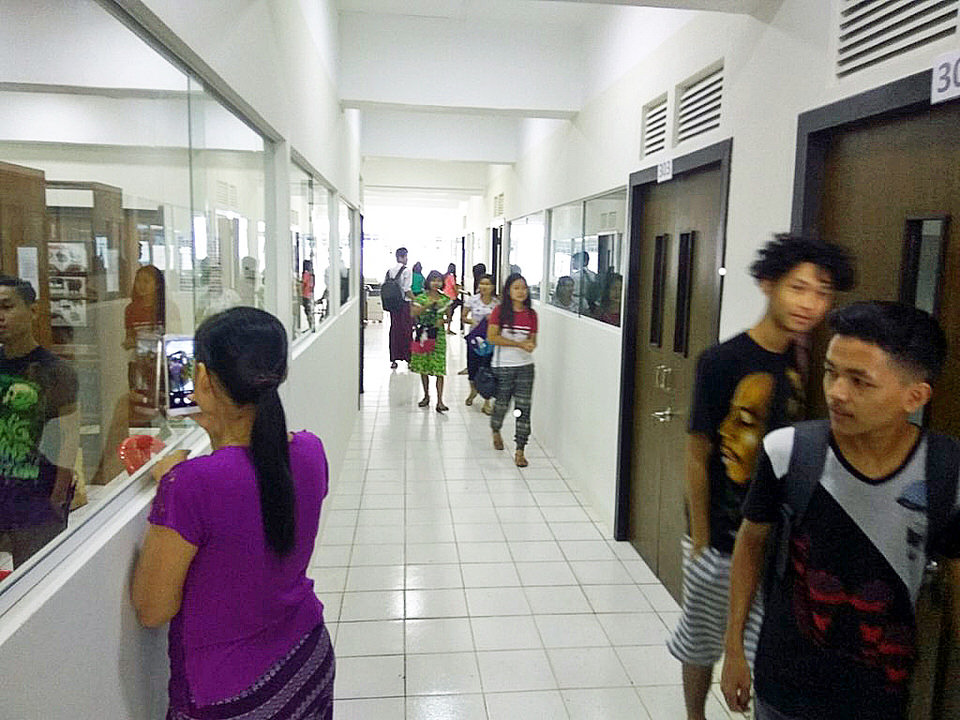

The Academy encompassed a range of programs, including five levels of English instruction and advanced courses. Classes were also tailored to the needs of Professionals, English Teachers and Young Learners. These programs were supplemented by Cetana’s Tech Center where students strengthened their comprehension through interactive computer programs.
Cetana English Proficiency Center (CEPC) –
For more than a decade, CEPC provided English language instruction, from Level 1 through Level 5. Classes were intended for high school graduates to prepare them for positions in business or for studies at English-speaking universities. Our English language classes were focused on developing all four skills within a critical thinking methodology. Cetana kept tuition at modest levels so that students from families with limited financial resources could participate.
Career Advancement Programs
These courses were directed at building a skills base for students who wanted to participate in the global opportunities provided with the opening of Myanmar to the West between 2011 and 2021. Courses also prepared students who sought to study abroad.
Based on our experience in introducing courses that have tangible benefits in the marketplace or academia, Cetana expanded its course offerings to include several profession-related courses within the rubric of Business English.
Business English courses were provided for employees at an UN agency, a bank and at the offices of an NGO. Courses for working professionals aim to help employees become more adept in verbal interchange and in writing memos, letters, reports and other business documents. Some course were developed to address specialized career needs, for instance for students employed as tour guides or other tourist-related businesses, such as airlines, hotels and travel agencies.
Teacher Training
English teachers in Myanmar are handicapped by the poor quality of English instruction in government schools and universities and by the country’s decades-long isolation from the world community. Many of these teachers seldom hear spoken English. In the traditional classroom, focus was on rote learning: students dutifully duplicated the sentences written on the blackboard by their teachers.
Cetana’s well-regarded Teacher Training courses were designed to boost teachers’ fluency and their skills in teaching English. The full course had four individual segments that focused on enhancing a teacher’s skill in presenting Listening, Speaking, Reading and Writing. English teachers from both public and private schools attended these courses over the years.
A modified form of this program was offered at the Sanda Rama Monastic School in Yangon and for teachers in the government school system in Kanpelet, in Chin State.
Young Learners
Cetana offered kids in the second through seventh grades (ages eight to thirteen) their first chances to speak and write English. The Young Learners classes were held for three hours on Saturday mornings and more often during school vacations. As young students gained in proficiency, Cetana added more advanced levels of English to keep pace with their progress. The goal was to have students fluent in English by the time they graduate from high school. All our programs incorporated an age-appropriate critical thinking component.
Classes were directed to students who come from families with limited financial resources.

